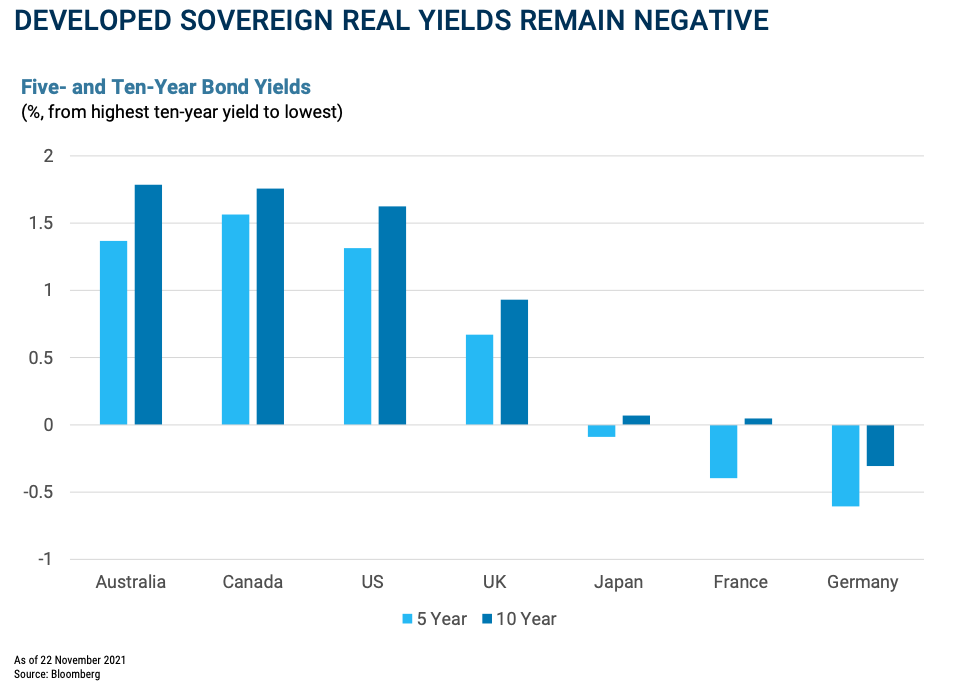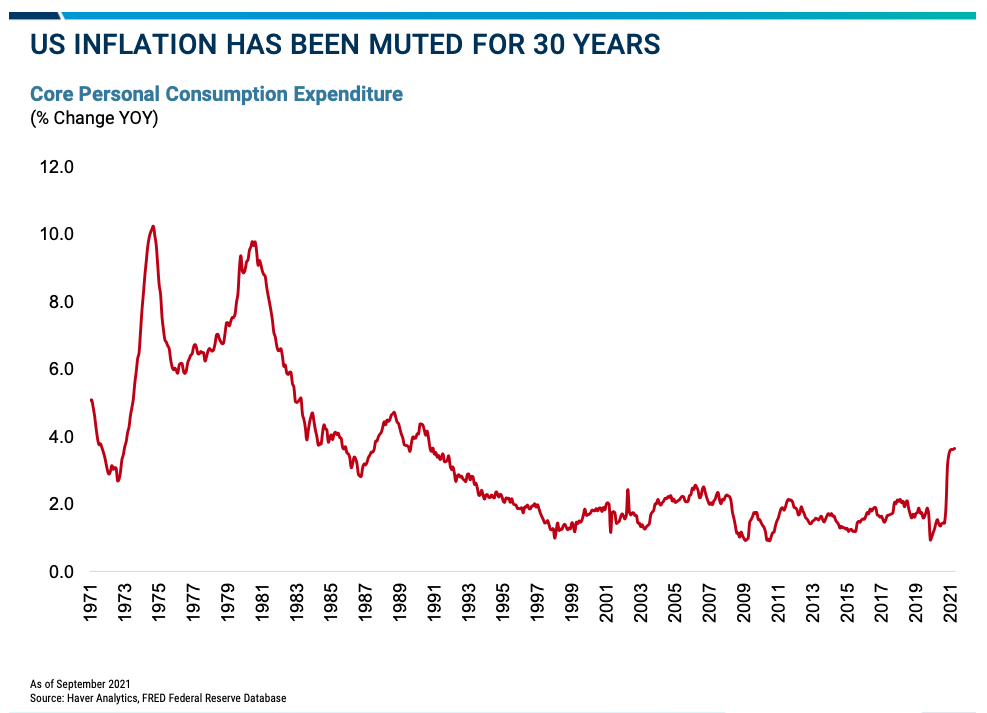Ron Temple: Cautious on high-multiple stocks but favours financials for 2022
If Lazard Asset Management's Ronald Temple is right about his outlook for 2022, you might want to rethink those bullish bets on the credit market and start dumping your most speculative stocks. In his two decades on the fund manager’s equities and multi-asset desk, Temple has ridden through:
- the tech-wreck aftermath,
- the Global Financial Crisis, and
- the 10-year bull market bookended by the pandemic selloff.

So, he’s certainly someone worth listening to. In a recent interview with the New York-based managing director of Lazard Asset Management, he spoke about the momentous macro events of the last (almost) two years. But more importantly, Temple also spelled out what these mean for retail investment portfolios and why investors should care.
Temple kicked off our chat with a detailed (and very interesting) discussion of US fiscal and monetary policy. This included his inflation outlook, anticipating it will stay around 2% or 3% in 2022 and 2023.
“What I’m really going to watch over the next 12 months is rent, which is about 30% or 35% of the US CPI,” he says.
“In the CPI, rent was up 3.5% year on year and I think that’s going to go up further. If your housing costs go up and are sustained on an upward trajectory, that’s going to put more pressure on employees to ask for wage rises. Which can lead to a structural increase in inflation.”

While some aspects that are driving inflation will be in the rear-view mirror by 2023, including supply-chain bottlenecks and the well-publicised semiconductor shortage, inflation will still be much higher than it has in the last decade – probably at the upper end of the 2% to 3% range.
What does this mean for portfolio asset allocation?
On the equities side, Temple assesses the implications for speculative growth stocks versus more cyclical growth.
“What I’m trying to focus on is the companies that have cash and profit now, because they’re going to be more resilient. The steeper yield curve means discount rates in the future go up.
“It’s not that you sell growth, it’s that you might want to sell speculative growth and buy quality growth. You probably want to sell speculative anything and be more invested in cyclical recovery quality and value. That’s where I think the action is in the market over the next 12 to 24 months.”
On the flip side, Temple says the more vulnerable companies are “wish stocks” – those that are more business plans than real businesses.
He also urges caution on some parts of the Alternatives sector. Though Temple believes investments in income-producing assets remain attractive, pointing to the 20% gains in US residential real estate in the last year and strong commercial property space.
“But one space I think might be challenged in Alternatives is private equity, especially if we get higher rates and they keep piling on these deals to try and generate returns,” Temple says.
“It doesn’t mean you should get rid of your private equity, but you might want a little less allocated to it going forward.”
While recognising PE assets have performed well over a long period, “I worry that many investors are undervaluing liquidity.”
Why are we hearing so much about private equity now? It all comes back to the difficulty of finding yield over recent years.
“A lot of the things that people like me have worried about in credit markets over the last few years, such as covenant-lite loans (which have fewer restrictions on the borrower and therefore lower protections for lenders).
“On the private credit side, you could argue that it’s the greater flexibility to work with the borrower is a positive. But to me, the incremental returns you’re generating from private credit don’t seem to be that attractive relative to giving up liquidity.”
Temple believes the core consideration for investors is the “haircut” you need to take on your holdings if you need to get out earlier than expected. If you can wait until they mature naturally, that’s fine, but I wonder if people are really thinking about their liquidity profile.
“And if inflation really did pick up – and if I’m wrong and I’m too complacent about it – how would that affect private credit? It depends how many of these loans are floating versus fixed, I honestly don’t know. I’m not sure you’d want a floating rate in those circumstances,” he says.
His preferences in alternatives are in infrastructure and property – both listed and unlisted.
“As equity market returns head back to earth, maybe that's where these alternatives strategies will fit in better.”
Financials and Healthcare are preferred sectors
In the equities space, some of the sectors Temple is most positive about into 2022 and 2023 are Financials, Healthcare and, to a lesser degree, Consumer Discretionary.
“I don’t see banks as a big money-spinner – they’re something you rent; you don’t own them. They’re not going to be the next Microsoft, but they can certainly go up in the space of a year,” he says.
And in healthcare, Lazard isn’t attracted to the “biopharma” category, largely because of the patent issues that dog the space and the costs of developing new drugs. Lazard’s preferred exposure here is in medical technology and devices – which he suggests could be regarded as an overlap of Quality compounding stocks.
An example he names here is Medtronic, an NYSE-listed maker of medical implants including a revolutionary pacemaker that is 95% smaller than previous designs.
But Temple emphasises he isn't making a call on Consumer Discretionary, regarding Lazard's holdings here as more "idiosyncratic” stories that are, partially at least, recovery plays.
“Interestingly, we are underweight tech. We don’t own all of the giant US tech companies, but we do own a couple of them. In some cases, we think the valuations have become quite stretched,” he says.
Google parent, Alphabet, with a market cap just shy of US$3 trillion, is an example of a big tech firm that is held in several Lazard funds.
“When you start talking about these types of market caps, that’s a lot of profit you’ve got to generate for a long time to warrant such a valuation. That tends to be a little bit more difficult for us to stomach.”
Learn more
For further insights from Lazard Asset Management's global group of experts, please visit our website.
3 topics
2 contributors mentioned

